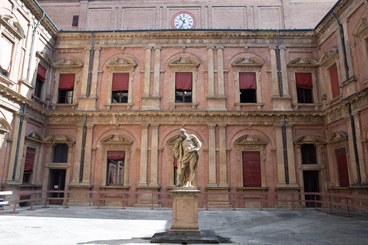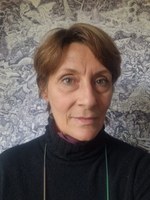Living Memory: The liberated indigenous archive

-
Date: 12 NOVEMBER 2025 from 17:30 to 19:00
-
Event location: Aula III via Francesco Selmi 2 - Bologna, Piano Terra.
-
Type: Lectures

Speaker
ISA Visiting Fellow -Giovanna Micarelli
Full Professor Pontificia Universidad Javeriana, Colombia
ATTENDANCE
-
in presence - book your seat
Book your seat within November 12, 12 p.m. The places will be assigned on “first come first served” basis.
The accessibility of the building is barrier-free, with pathway from the side entrance with building slide to the classroom located on the ground floor. Also available to persons with disabilities is a single-seat anthropometric bench with variable elevation and tilt positioned near the desk.
The lecture will examine indigenous modes of knowing and remembering to rethink the archive not as a static collection of stored documents, but as a dynamic network of socio-ecological relations: an expanded, sensory, and living “archive.” It will focus on indigenous epistemologies —in which the act of knowing and remembering is conceived as a practice of correspondence with a world in constant becoming— to essentially transcend the traditional model of “the archive.” It will address the concrete expressions of indigenous sensory and situated knowledge/memory with a particular focus on knowing-by-doing, environmental perception, and entangled people/material relations. The lecture will also explore the role of this sensory archive in educational processes to challenge the objectification of knowledge inherent in both the archive and the school paradigm. A key question is how to imagine “meta-recording” knowledge and memory inscribed in places, practices, and artifacts without reducing them to inanimate objects. Finally, the lecture will address critical issues of indigenous intellectual property rights and heritage politics, questioning whether the concept of “property” is compatible with other ontoepistemologies and horizons of valuation. The lecture will highlight the role of cognitive justice in achieving a plural transformation of rights, integrating indigenous ontoepistemologies into decolonial political discourse on autonomy, self-governance, and intercultural dialogue.